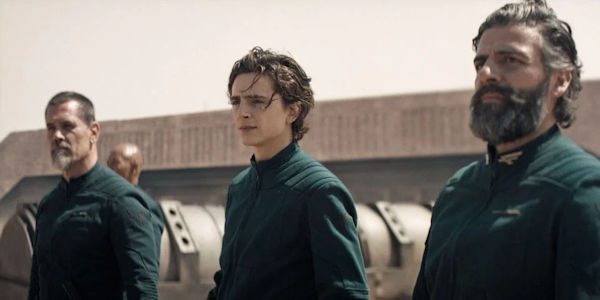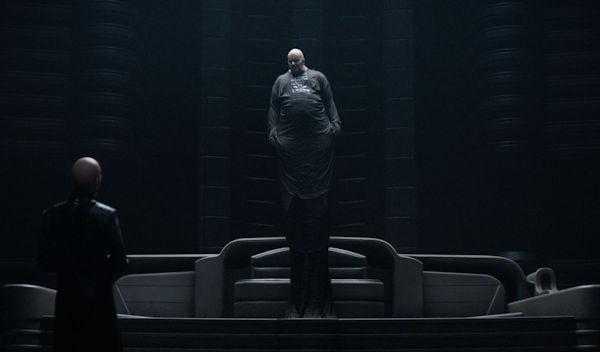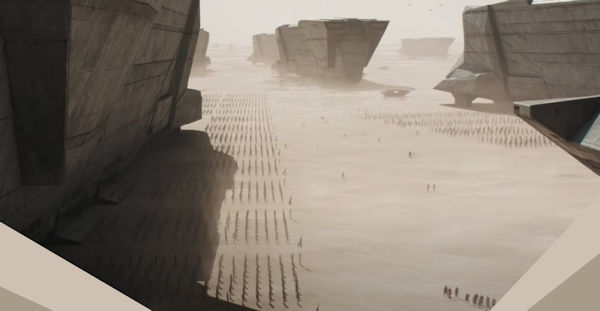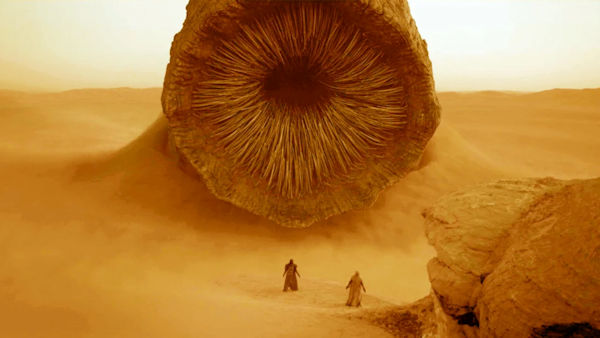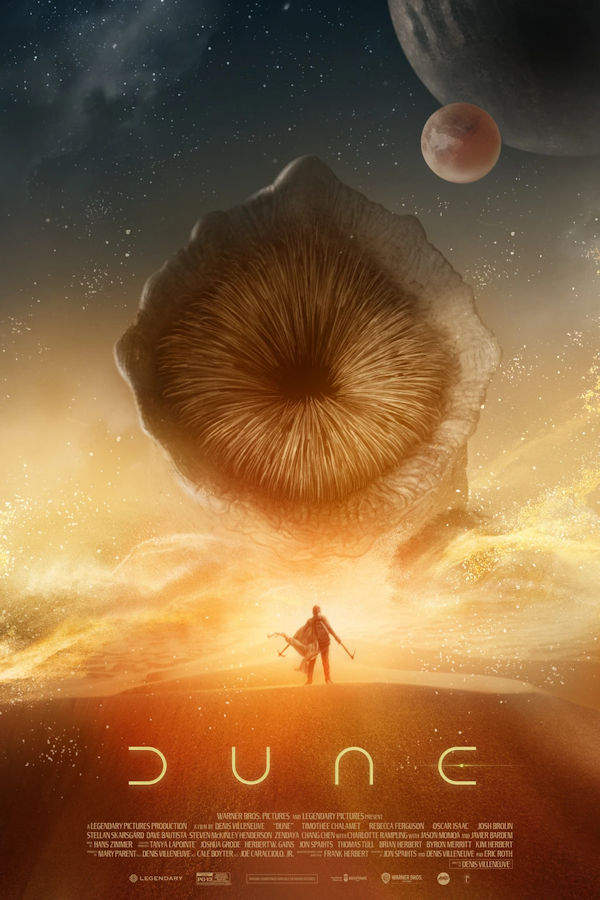 Dune (2021) is an adaptation of the first half of Frank Herbert’s classic science fiction novel. The film, directed by Denis Villeneuve, tells the story of Paul Atreides, the son of Duke Leto, who is the head of a powerful clan in the far future. When House Atreides is sent to the desert planet of Arrakis to mine the spice Melange, their feud with the villainous House Harkonnen erupts into betrayal and outright violence. Meanwhile, Paul must contend with strange visions and a destiny that threatens to make him both a kind of super-being and a ruthless conqueror.
Dune (2021) is an adaptation of the first half of Frank Herbert’s classic science fiction novel. The film, directed by Denis Villeneuve, tells the story of Paul Atreides, the son of Duke Leto, who is the head of a powerful clan in the far future. When House Atreides is sent to the desert planet of Arrakis to mine the spice Melange, their feud with the villainous House Harkonnen erupts into betrayal and outright violence. Meanwhile, Paul must contend with strange visions and a destiny that threatens to make him both a kind of super-being and a ruthless conqueror.
Previous attempts to film Dune have been unsuccessful: Alejandro Jodorowsky planned a wildly lavish interpretation in the 1970s, which (perhaps thankfully) was never made, and David Lynch made an impressive looking, but pretty incoherent, film in 1984. So, has Villeneuve succeeded where they failed, and made a film that captures the story, characters and themes of the book?
Firstly, in Villeneuve’s Dune, it’s actually clear what’s going on. That might sound like faint praise, but Dune is a complex book, with several sub-plots beyond the main story of Paul becoming a desert warlord and taking revenge on his enemies. The fact that this film only covers the first half of the novel helps greatly here. That said, there are still scenes where characters watch holographic projections that, conveniently, fill us in on what to expect, but I can’t see how that could be avoided. At least we don’t have the internal monologues and infodumping of the 1984 version.
The members of House Atreides are well-cast, although I didn’t like them quite as much as their equivalents in David Lynch’s version of Dune. Timothée Chalamet plays Paul well, moving from a quiet beginning to becoming a resourceful survivor. Oscar Isaac is a regal, if slightly cold, Duke Leto, and Jason Momoa as Duncan Idaho is good as the father/older brother to Paul that Leto cannot be. The only portrayal that didn’t work for me was that of Lady Jessica, Paul’s mother. Rebecca Ferguson is perfectly good in the role, but Villeneuve’s Jessica comes across as rather weak, more a broken woman than the shrewd, skilled concubine-assassin of the novel. She becomes more assertive towards the end, so perhaps we’ll see more of that in the second half of the story.
The Baron Harkonnen, the film’s arch-villain, was always going to be difficult to portray. In the book, he’s not only monstrously self-indulgent, like a fat Roman Emperor, but he’s the only gay character. Thankfully, Villeneuve leaves the Baron’s sexuality out of it, and Stellan Skarsgard portrays him as a cross between a menacing ghost and Colonel Kurtz from Apocalypse Now. The rest of the Harkonnens are solid: Dave Bautista is suitably thuggish as Beast Rabban, and David Dastmalchian makes a slimy Piter de Vries, the Baron’s advisor.
The story moves quite smoothly, and, while I found Villeneuve’s Blade Runner 2049 to be a bit too long, Dune didn’t become dull or outstay its welcome. It is often quite beautiful, and very well shot.
However, and this is my main criticism, I feel the film is slightly under-designed. The Dune world is a strange and often grotesque place, and Villeneuve’s film fails to capture the sheer weirdness of how it could look. Lots of the troops in Dune look like motorbike riders, and the spaceships resemble concrete slabs. It’s very slightly bland, especially when compared to the wild visuals of David Lynch’s version. I was hoping for something really strange – a sort of Titus Groan in space – and felt disappointed it wasn’t more visually inventive.
Villeneuve’s Dune ends with the Atreides scattered and Paul and Jessica joining the Fremen, the people of the desert of Arrakis. It’s only half the story, but it’s a good place to end the film, as the second half will concern Paul’s ascent to desert warlord and his revenge on his enemies.
Overall, Dune is a very impressive film, and deserves a lot of credit for being able to tell its complex story without having to water down the novel or squash it out of shape. Personally, I found it engrossing in terms of character and story, but at points slightly disappointing in terms of visuals. I would give it 7 out of 10, but I suspect a lot of people would score it higher than that. It is quite an achievement, and I will definitely be looking out for the second part.

